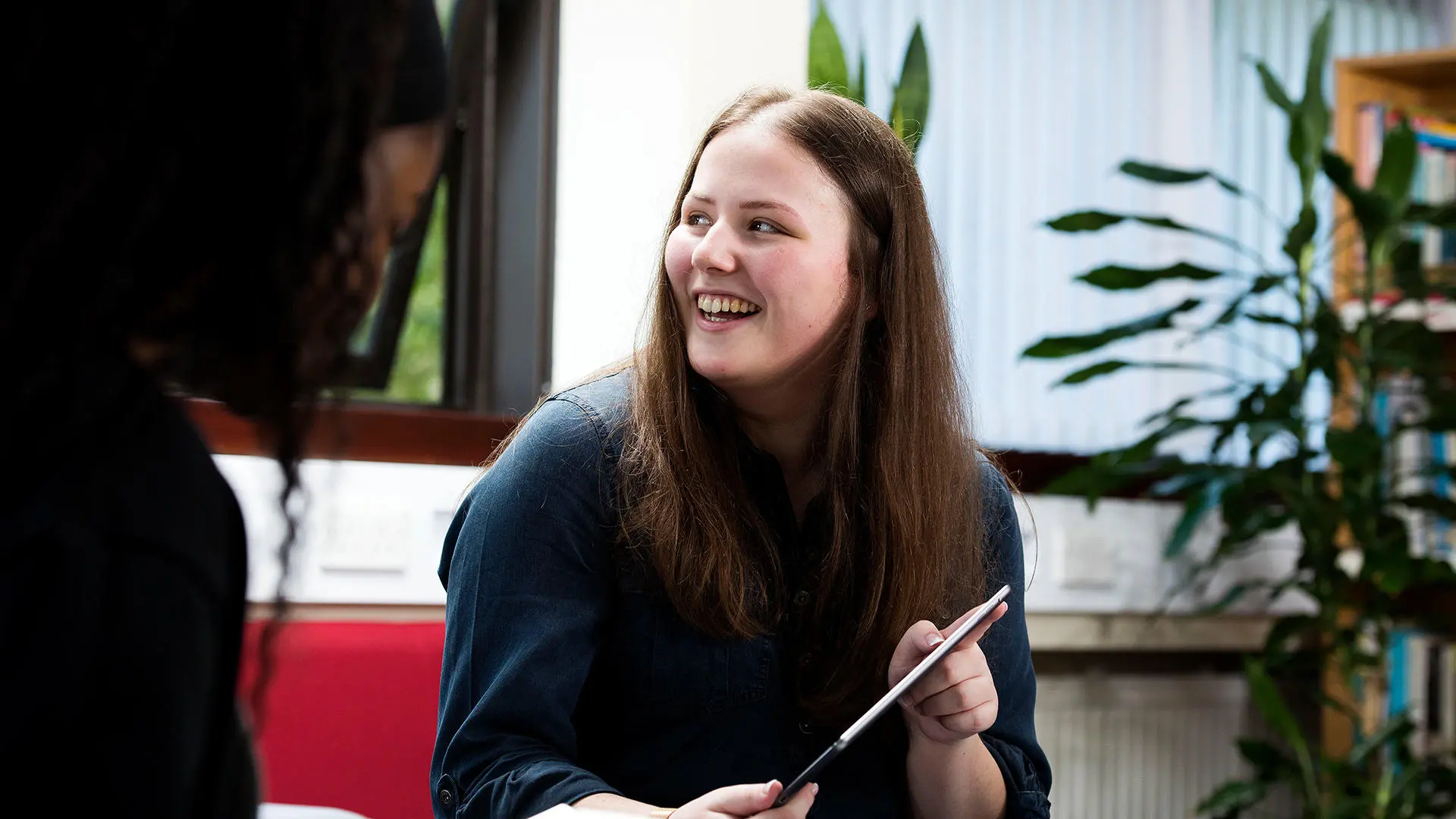Prepare yourself for success in this truly global age by learning two modern languages. Open up a world of opportunities for your future. Choose from British Sign Language, Chinese, Japanese, Korean or Spanish.
Why study with us
- You’ll have the opportunity to work or study abroad. You can enhance your language skills, improve your confidence and experience a different culture.
- Choose to study two languages from BSL, Chinese, Japanese, Korean or Spanish. You will also have the chance to learn a third language through our Worldwise Centre.
- Our Worldwise Centre offers support with your study of world languages, cultures, travel, and work or study abroad.
What you'll do
- You'll gain high-level competence in speaking, reading, writing, and listening in two languages. You'll also analyse the cultures, histories, and socio-political contexts of these languages.
- Cultural diversity is one of our distinguishing features. You’ll learn from an experienced team of languages scholars that includes 20 different nationalities.
- You'll build transferable skills through varied assessments, projects, and real-world simulations. This includes problem-solving, communication, teamwork, and self-management, preparing you for a successful career.
Language choices
On our BA (Hons) Modern Languages, you'll have the opportunity to study two languages with equal weighting. This allows for a balanced and good understanding of both.
Modules
The modules you'll study will depend on the languages you choose. You'll study compulsory modules related to your chosen languages, including BSL, Chinese, Japanese, Korean or Spanish. The modules available to you in your final year will depend on whether you study abroad.
Every effort has been made to ensure the accuracy of our published course information. However, our programmes are subject to ongoing review and development. Changing circumstances may cause alteration to, or the cancellation of, courses. Changes may be necessary to comply with the requirements of accrediting bodies or revisions to subject benchmarks statements. As well as to keep courses updated and contemporary, or as a result of student feedback. We reserve the right to make variations if we consider such action to be necessary or in the best interests of students.
Future careers in modern languages
Studying our BA (Hons) Modern Languages course can open the doors to a wide range of career options, whether at home or abroad. From finance and tourism, to teaching and government work.
When you graduate from this course you’ll leave us with the skills and understanding that would make you a valuable asset to a variety of employers. You could work in the UK for an organisation such as:
Entry requirements
We will consider your educational achievements, predicted grades, work experience and personal statement. If you don't meet the grades for your chosen course, we will consider you for other programmes.
We know that many factors can influence the grades you achieve in school or college. If your life experience has affected your academic studies, we can take this into account. Use the UCAS Points Calculator below to check whether you are eligible.
Unsure if you meet our entry requirements? Contact our friendly Course Enquiries team to talk through your options.
- UCAS: 96-112 points at A2
- BTEC Extended Diploma: MMM - DMM
- BTEC Diploma: DD-D*D*
- Pass Access Course: 96 - 112 points
- International Baccalaureate Diploma: Pass including 96 - 112 points from Higher Level subjects
- T Level: P (A*-C) - M
- IELTS: 6.0 with no component lower than 5.5
- GCSEs: 5 at grade C/4 including Maths and English or equivalent
Use our UCAS points calculator
Not got the grades?
Our courses with a foundation year could be exactly what you're looking for. They provide an alternative route to study for this degree.
Fees and funding
Scholarships and bursaries
We have a wide range of bursaries, scholarships and funds available to help support you whilst studying with us.
Select your country to see eligibility information and how to apply by selecting more info on the cards below.
Care Leaver Bursary
Our Care Leaver Bursary is for students who need extra support because they have been in care or are estranged from their parents.
Find out more about Care Leaver BursaryEstranged student support
Estranged Student Support Bursary is for students who need extra support because they are estranged from their parents.
Find out more about Estranged student supportDependants Bursary
Students with financially dependent children may be eligible for our Dependants Bursary as part of our financial support package.
Find out more about Dependants BursaryFinancial support package
If you are from a low income household our Financial Bursary may be able to help.
Find out more about Financial support package
This course is delivered by the School of Psychology and Humanities
For information on possible changes to course information, see our essential and important course information
You can find regulations and policies relating to student life at the University of Central Lancashire on our student contract page

